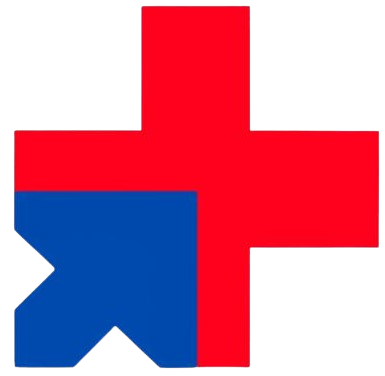Daily calorie intake is a term you’ve probably come across if you’re interested in healthy living. But what does it really mean? Simply put, it’s the amount of energy, measured in calories, that you consume through food and drinks each day.
Why should you care about your daily calorie intake?
Your body needs calories for energy. However, if you consume more than your body needs, it stores the excess as fat leading to weight gain over time. Conversely, consuming fewer calories than your body requires can lead to weight loss. Thus, understanding and managing daily calorie intake is pivotal for effective weight management and maintaining overall health.
In this article, we delve into how to calculate your personalized daily calorie needs. We also provide tips for maintaining a balanced caloric intake.
But there’s more!
Understanding your daily calorie intake can empower you to make informed food choices. It’s not just about how much you eat but what you eat that counts. Knowledge of your caloric requirements can help guide you towards healthier foods and portion sizes to align with your health goals.
So let’s dive into the world of calories and learn how to master them for our health and well-being!
Understanding Your Daily Calorie Needs

When it comes to how many calories you should eat in a day, it’s important to know that this number can vary widely from person to person, especially based on things like gender and how active you are. Health organizations have come up with some general guidelines to help with this:
For Men
On average, men need more calories than women because they tend to have more muscle mass and larger bodies. The guidelines say that men should aim for around 2,200 calories a day to maintain their weight, but this can change depending on how much they exercise or move around.
For Women
In general, women are advised to eat about 1,800 calories per day. Just like with men, this is a starting point and can be adjusted based on activity level and other individual factors.
It’s important to remember that these are just rough estimates. The numbers can go up or down depending on how much physical activity you do or if there are any changes in your metabolism. Understanding these differences is key for anyone who wants to know more about their own eating habits and make healthier choices. Next, we’ll look at some of the specific things that influence how many calories you personally need each day.
Factors Influencing Your Personalized Caloric Requirement

When determining your personalized caloric requirement, a number of key factors come into play. Each of these aspects carries significant weight in shaping your unique daily calorie needs.
Age
As we grow older, our metabolism tends to slow down, reducing the number of calories needed to maintain body functions.
Gender
On average, men have more muscle mass and less fat compared to women of the same age and weight, thus burning more calories.
Weight
Your current weight plays a crucial role in calculating calorie needs. More body mass requires more energy to sustain, hence higher calorie requirements.
Activity Level
How active you are throughout the day greatly impacts your calorie requirements. The more physically active you are, the more calories you burn.
Remember, knowing these factors isn’t just about numbers; it’s about understanding how your body works and what it needs to function optimally.
Calculating Your Daily Calorie Needs

To tailor your diet effectively, understanding your body’s caloric requirement is essential. Several caloric requirement calculation methods exist to help you determine your daily energy needs with precision.
Harris-Benedict Equation
A time-honored formula that estimates basal metabolic rate (BMR) and total calorie needs based on your age, sex, height, and weight. For example, a 30-year-old woman weighing 140 pounds at 5’5″ would calculate her BMR as follows:
BMR for women = 655 + (4.35 x weight in pounds) + (4.7 x height in inches) – (4.7 x age in years)
This would result in a BMR of roughly 1,435 calories per day before factoring in activity levels.
Mifflin-St Jeor Equation
Considered to be more accurate by many health professionals, this method also requires the same basic information but uses different coefficients:
For women: BMR = (10 x weight in kg) + (6.25 x height in cm) – (5 x age in years) – 161
Using our previous example, this woman’s BMR would be approximately 1,370 calories per day.
By pinpointing your caloric needs, you set the stage for successful weight management. Whether aiming to lose, maintain, or gain weight, knowing the number of calories your body requires ensures you can plan meals and snacks that align with your health goals while satisfying hunger effectively.
Practical Tips for Managing Your Calorie Intake

Maintaining a healthy caloric balance hinges on effective portion control to prevent overeating and support calorie-conscious eating. When food portions exceed your body’s energy needs, the surplus can lead to weight gain. Conversely, understanding and managing portions can aid in maintaining or achieving a desired weight. Here are some strategies for portion control during meals and snacks:
Use Smaller Plates
This visual cue naturally encourages smaller servings and can help reduce the likelihood of unintentional overeating.
Measure Servings
Familiarize yourself with standard serving sizes and use measuring cups or a kitchen scale. This habit ensures accuracy in tracking your intake.
Mindful Eating
Slow down and savor each bite, which can lead to better recognition of satiety signals before you’ve eaten too much.
Check Food Labels
Pay attention to the serving sizes listed on packaging to better understand how much you’re consuming.
Implementing these straightforward practices can create a solid foundation for managing daily calorie intake without feeling deprived.
The Quality of Calories Matters Too

When it comes to managing daily calorie intake, the type of calories consumed is equally crucial. Not all calories are created equal and choosing nutrient-dense foods can dramatically impact your health and weight goals.
Nutrient-dense foods are rich in vitamins, minerals, complex carbohydrates, lean protein, and healthy fats. Examples include fruits, vegetables, whole grains, lean meats, and dairy products. These foods provide essential nutrients for your body without packing on unnecessary calories.
On the other hand, foods high in added sugars or unhealthy fats might have the same calorie content but can lead to unhealthy weight gain and increase the risk of nutrition-related diseases.
Consuming a 200-calorie sugary soda is not the same as eating 200 calories worth of broccoli. The soda offers empty calories devoid of any nutritional benefits while the broccoli provides fiber, vitamins, and minerals.
Remember to look beyond just calorie counts – consider the quality of these calories too. Because what you eat matters as much as how much you eat!
Building a Balanced and Nourishing Meal Plan

Adopting balanced meal guidelines is crucial for crafting a meal plan that not only fits within your calorie needs but also provides the nutrition your body requires. Here’s how you can incorporate a variety of food groups into every meal:
1. Fruits/Vegetables
Aim to fill half of your plate with fruits and vegetables. These powerhouses of nutrients add volume and fiber to your meals, helping you feel full while keeping calories in check.
2. Whole Grains
Designate a quarter of your plate for whole grains like brown rice, quinoa, or whole-wheat bread. They offer essential B vitamins and more fiber than their refined counterparts.
3. Lean Proteins
The remaining quarter should include lean proteins such as chicken, fish, tofu, or legumes. Proteins are vital for muscle repair and can help regulate hunger hormones.
Practical Tips for Meal Planning
Here are some practical tips to make your meal planning easier:
- Prep in Advance: Spend some time each week preparing key components of your meals. Cook grains, chop veggies, or portion out proteins to streamline assembly during busy days.
- Mix It Up: Keep a variety of spices, herbs, and condiments on hand to add flavor without significantly increasing the calorie content.
- Stay Flexible: If a particular food group is overrepresented in one meal, adjust the next to maintain balance.
By following these guidelines, you’ll create satisfying meals that support your health goals without compromising taste or nutrition.
Other Considerations for a Healthy Caloric Intake

Understanding the impact of food preparation choices on the caloric content of your meals can significantly aid in maintaining a balanced diet. For instance, grilling chicken rather than frying it can save you numerous calories and reduce unhealthy fat intake. Opting for healthier cooking techniques, like steaming or stir-frying with minimal oil, also helps keep your meals nutrient-rich and low in unnecessary fats.
Speaking of fats, they play a vital role in a calorie-controlled diet. It’s essential to understand that not all fats are created equal. Unsaturated fats found in foods like avocados, nuts, seeds, and oily fish are beneficial for our health and should be included in our diet.
To complement your mindful eating habits, regular physical activity is crucial. Incorporating exercise into your daily routine not only helps balance energy intake and expenditure but also promotes overall well-being. Remember, achieving a healthy weight isn’t just about diet; it’s about creating a sustainable lifestyle that includes both balanced nutrition and regular physical activity.
Staying Consistent with Your Daily Calorie Goals

Adhering to caloric intake goals requires commitment and behavioral strategies, especially when faced with social gatherings or dining out. Here are practical tips to help you maintain your calorie budget:
Preview Menus
Before attending an event or restaurant, check the menu online. Decide what fits your calorie goals and resolve to stick to your plan.
Portion Control
When meals are served, ask for half portions or share entrees with a friend. Opting for appetizers as your main course can also be a savvy move.
Healthy Snacking
Carry low-calorie snacks like almonds or fruit. Eating these before an event can curb hunger and help you resist high-calorie temptations.
Beverage Choices
Choose drinks wisely; water, unsweetened tea, or black coffee over calorie-laden beverages.
Communication
Don’t hesitate to communicate dietary preferences. Most hosts and restaurants are willing to accommodate special requests.
By implementing these strategies consistently, you can enjoy social events without derailing your nutrition goals.
Resources for Additional Support
Navigating the world of calories can be daunting. Thankfully, a wealth of health and wellness resources are available to assist you:
- Nutrition tracking apps: Apps like MyFitnessPal, Lose It!, or HealthifyMe are handy tools for keeping an eye on your daily intake. They offer personalized calorie recommendations, track your food consumption, and even provide insights into your macronutrient breakdown.
- Online communities: Platforms such as Reddit’s r/loseit or r/fitness subreddits present a platform for sharing experiences, tips, and motivation with like-minded individuals. These platforms can offer support and encouragement while holding you accountable to your calorie goals.
- Professional guidance: While technology offers convenient solutions, nothing can replace professional guidance. Registered dietitians possess the knowledge and experience necessary to tailor a plan to your specific needs. This is particularly crucial when embarking on a significant weight loss journey where inaccurate calorie counting or extreme diets could harm rather than help.
Remember that each person’s dietary needs are unique. Therefore, seek professional advice before making substantial changes to your daily calorie intake.
Conclusion
Gaining insight into your daily calorie intake is a crucial step towards maintaining a healthy weight. By understanding and applying the knowledge of how many calories you need based on your lifestyle, you set yourself up for success in achieving a balanced and healthy diet. Remember that every bite you take can either bring you closer to your wellness goals or move you further away, so it’s important to be well-informed and make choices that benefit your overall well-being.
Here are some key takeaways:
- Calculating personalized daily calorie needs provides clarity and direction for managing dietary habits.
- Being aware of the calories you consume compared to the calories you burn influences decisions that contribute to a healthier lifestyle.
- Paying consistent attention to your calorie intake can be a solid foundation for your weight management efforts.
By keeping these principles in mind, you create an environment where making informed food choices becomes natural, setting yourself up for a healthier future.
Read Next: Breakfast, Lunch & Dinner: Fantastic 100 Calorie Cutting Made Easy
FAQ
How do I determine the number of calories I should eat per day? To estimate your daily calorie needs, consider using the Harris-Benedict or Mifflin-St. Jeor equations that factor in age, gender, weight, height, and physical activity level. For personalized advice, you may also consult a registered dietitian.
Do my calorie requirements change as I get older? Yes, caloric needs typically decrease with age due to changes in metabolism and activity level. It’s important to adjust your intake accordingly and focus on nutrient-dense foods.
Can I eat whatever I want as long as I stay within my calorie limits? While staying within calorie limits is crucial for weight management, the quality of the calories consumed matters for overall health. Prioritize whole foods like fruits, vegetables, lean proteins, and whole grains.
What if I have trouble sticking to my daily calorie goal? Consider strategies like portion control, planning meals ahead of time, keeping healthy snacks on hand, and tracking your intake with apps. Flexibility is key; if you exceed your goal one day, adjust your intake the next day.
Why is exercise important if I’m already managing my calorie intake? Exercise complements a balanced diet by boosting metabolism, strengthening muscles, and improving cardiovascular health. It also helps create a larger calorie deficit for weight loss or maintenance.


